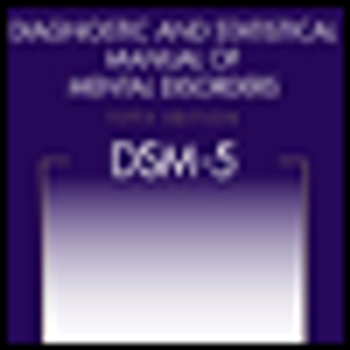
In psychiatry, it seems like our traditions are often ignored or discarded as being outdated. Do we not have some time-tested literature that is still relevant to our psychiatric times?

In psychiatry, it seems like our traditions are often ignored or discarded as being outdated. Do we not have some time-tested literature that is still relevant to our psychiatric times?

A study has reported a link between postpartum psychosis in women within 2 weeks after childbirth and a future risk of developing it.

In his book, How We Age: A Doctor’s Journey Into the Heart of Growing Old, Dr Marc Agronin helps reduce the stigma of ageism and provides clinical guidance for seasoned geriatric psychiatrists, primary care clinicians, and medical students alike.

This article explores the use of functional analytic psychotherapy (FAP)-a behavioral, evidenced-based approach to psychotherapy that can add psychotherapeutic benefit to your existing brief approaches during medication checks.

Insurance often pushes pills rather than talk therapy, believing drugs are less expensive (although there is a fair amount of evidence to the contrary).

ADHD is often inaccurately diagnosed and prematurely treated with medication-especially under the pressure of heavy drug company marketing to physicians and direct advertising to parents and teachers.

More than 50 years ago, Charles M. Schulz, creator of “Peanuts,” coined the term “Happiness is a warm puppy.” Schulz may have been more visionary than he recognized.

This blog is a follow-up to an earlier post. The great news is that there is an active public debate on DSM-5.




Although memoirs have become all the rage, they are rarely written by anyone in the field of psychiatry . . . and for good reason.

The purpose of suicide risk assessment is to identify treatable and modifiable risks and protective factors that inform the patient’s treatment and safety management requirements.

Max Fink, M.D., Professor of Psychiatry and Neurology Emeritus at Stony Brook University School of Medicine, received the Thomas William Salmon Award for outstanding contributions to the field of psychiatry.

The report notes that pain is a significant public health problem that affects more than 100 million Americans, costs our society at least $560 to $659 billion annually, and can be severely detrimental to the lives of sufferers.

The race to patent bio-tests for schizophrenia and depression: some say this initiative is destined to fail.

Neuroimaging… is it still a research tool in psychiatry, or is it ready for prime time? In this video, Jair Soares, MD, of the University of Texas at Houston, touches on the main brain imaging techniques and their possible uses in mental health practice.

Aggressive behavior is one of the most frequent reasons for consultation with a mental health professional in community-based settings. Dr Hendren presents a neurodevelopmental model for the assessment and treatment of aggression in youths.

Many health care professionals do not know how standards of care and medical malpractice are determined. This lack of knowledge can result in either inadequate communication or defensive medical treatment. Dr Rodgers reviews malpractice standards and addresses issues regarding technologies such as email, social networking, and cyber-treatment.

The goal of treating the whole patient, ie, integrating the mind-body connection into mental health care inititiatives, is to provide health care professionals with tactics to effectively identify interdependent conditions of the mind and body that impair psychiatric well-being, as well as strategies for successful treatment and management options in the clinical setting to improve patient care, outcomes, and overall wellness.

The subtleties of the sense of humor may reveal alterations in mental status, yet it is often overlooked when assessing patients. It is a valuable area of inquiry and may shed light on problems of social relatedness as well as highlight resilience and coping mechanisms. Dr Greenberg discusses the use of the sense of humor in assessing well-being and how to use the sense of humor therapeutically.

On November 21, 2011, John Oldham, MD, president of the American Psychiatric Association (APA), wrote a response letter to Don W. Locke, EdD, president of the American Counseling Association, who had some concerns with proposed revisions for DSM-5.

A recent opinion piece on the cover of the November 2010 issue of the Psychiatric Times had many in my residency class talking.

Some months ago, I received a stern admonition from my family doctor. My fasting blood sugar of 99 mg/dL was “right on the border”, he said, and I had better work on bringing it down. “But,” I protested, “when I was in medical school (in the 70s), the normal FBS range went up to 110 mg/dL!” "Well,” he replied a bit huffily, “they changed the criteria!”

Diminishing libido is a symptom of depression, but antidepressants do not always restore sexual interest. Loss of desire may be the cause of depression, not its consequence. Dr Levine explains the nature of sexual desire and its relationship to arousal including the various biogenic, psychogenic, interpersonal, and cultural factors that contribute to problems associated with sexual desire.

The articles by Arline Kaplan and Hagop Akiskal, MD, in the November 2011 issue of Psychiatric Times highlight the race to patent bio-tests for schizophrenia and depression.

The users’ revolt against DSM-5 marches on and just became a much, much bigger parade.

Perinatal anxiety disorders are common and pose risks to women and their offspring. Here, Laura Miller, MD, speaks briefly on panic disorder, PTSD, and OCD during pregnancy and post-partum, and she offers strategies for crafting effective treatment plans.

Mood and cognitive disorders are major public health problems, and care for patients with such conditions is of growing importance as the population ages. Here, geriatric psychiatrist Jeffrey Lyness, MD, of the University of Rochester School of Medicine and Dentistry in New York offers teaching points about the evaluation of depression in older persons.

Terrence Malick’s The Tree of Life is not easy entertainment, but for psychiatrists who might welcome an encounter with a brilliant, uncompromising mind, The Tree of Life is enthralling.